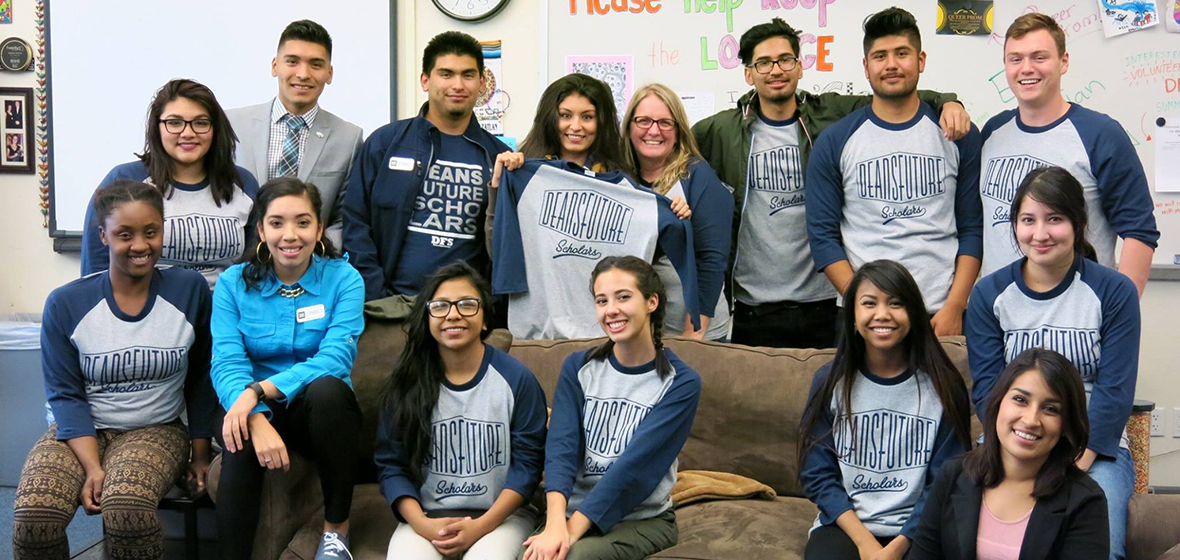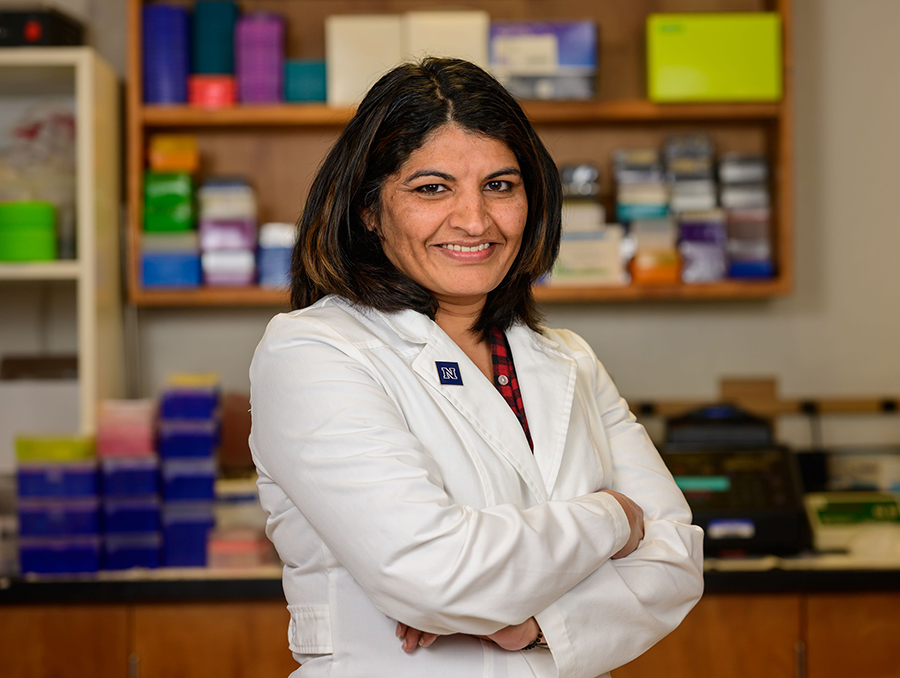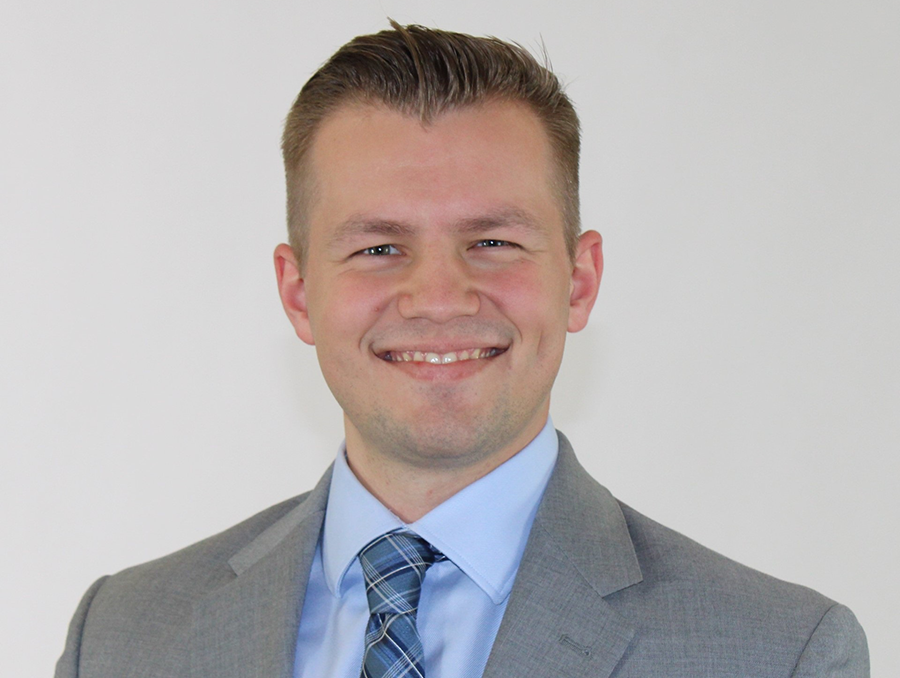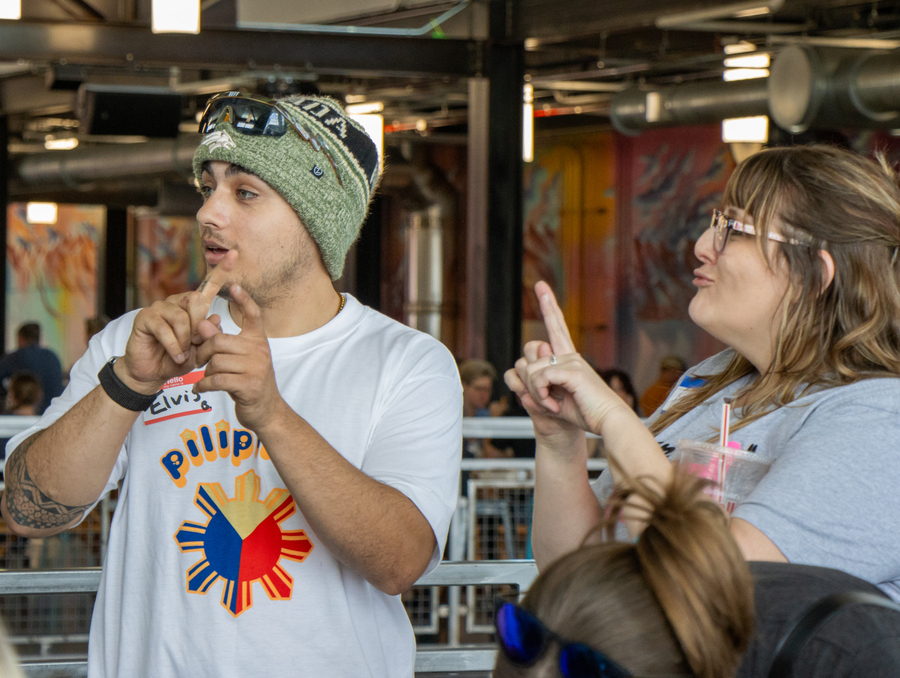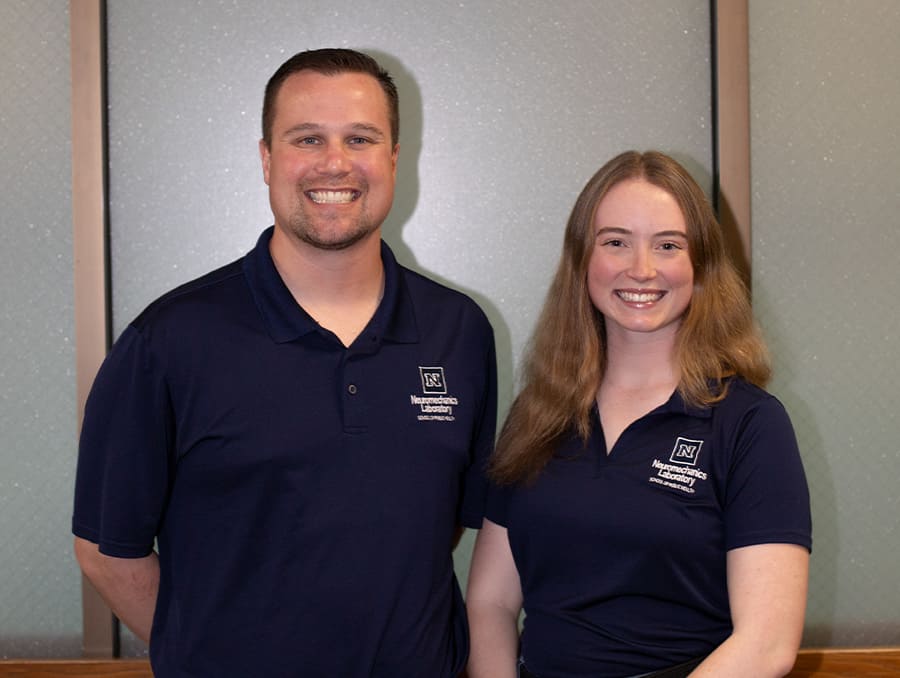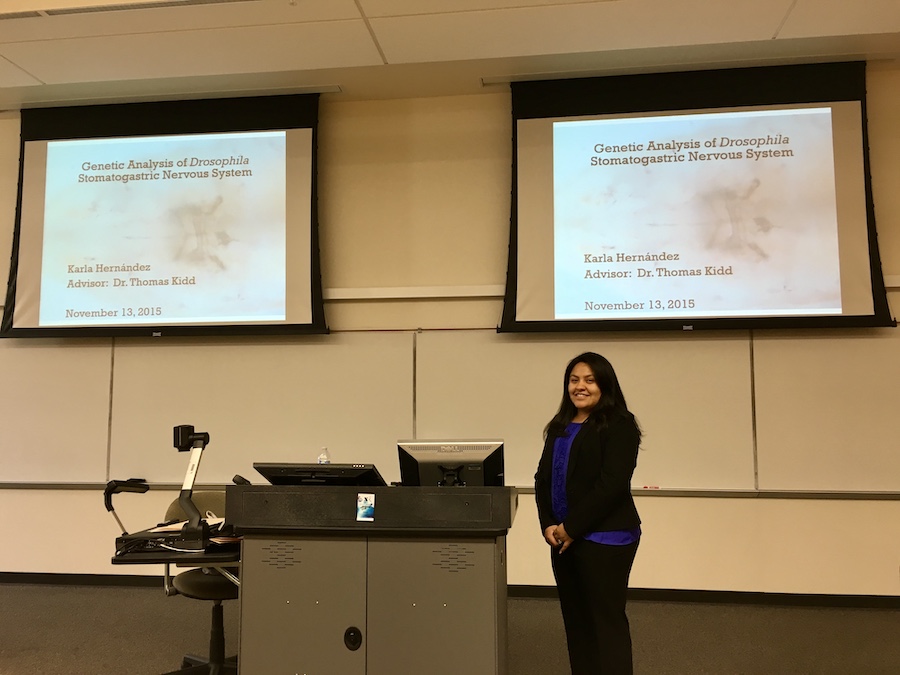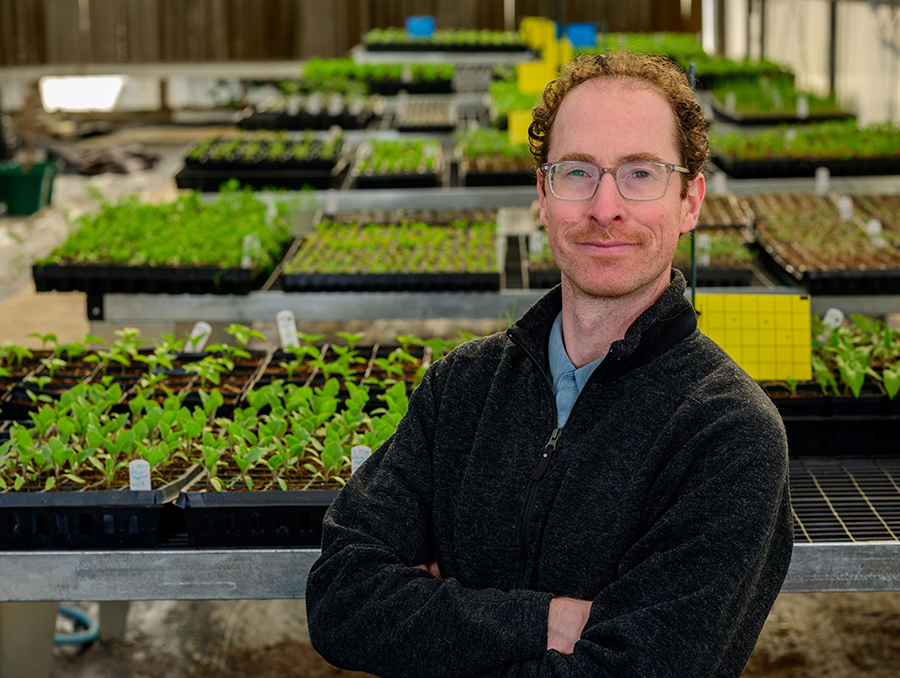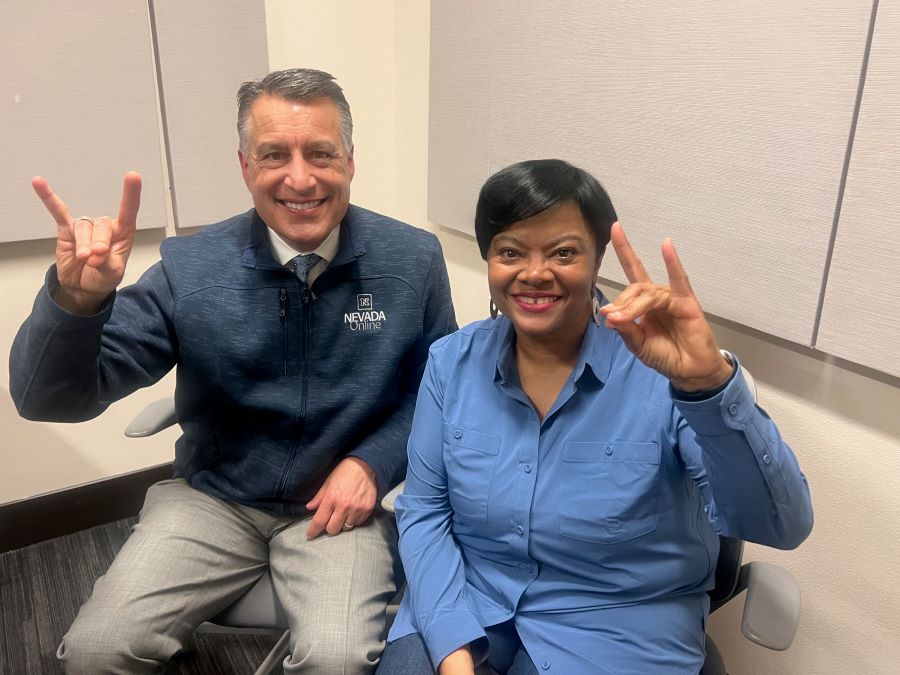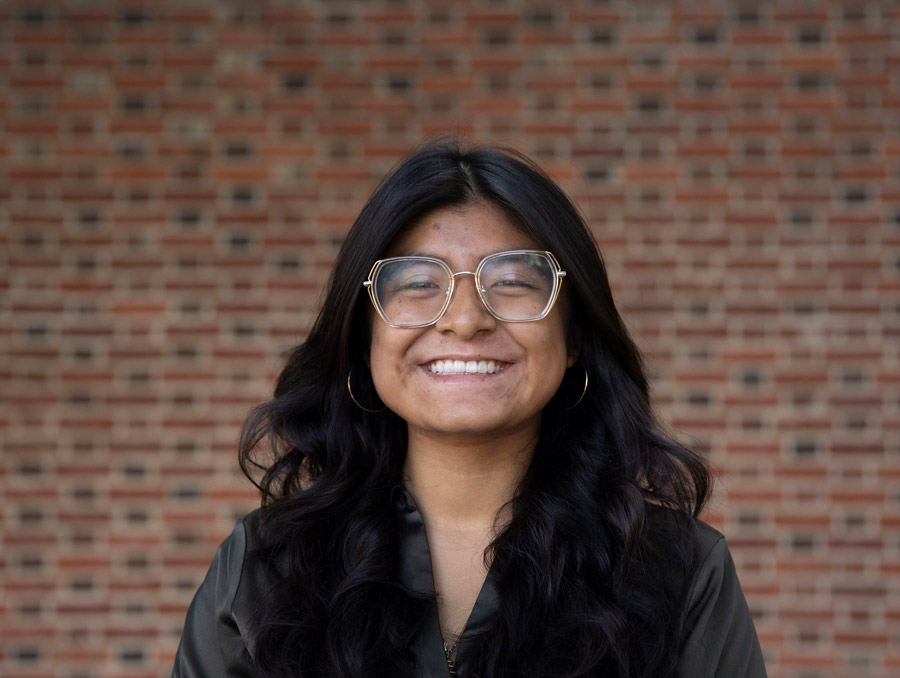Getting a recipe right often ensures little or no change is needed in order to achieve success time and time again. Some might say the Dean's Future Scholars program at the University of Nevada, Reno has the winning recipe when it comes to graduating low-income, first-generation high school and college students.
For the past 17 years Dean's Future Scholars, a program of the University of Nevada, Reno's College of Education, has focused on increasing the number of low-income, first-generation students graduating from high school, gaining access to higher education, graduating and entering in the field of education. The program was established by William Sparkman, College of Education dean from 1998-2010 and continues today with commitments from College of Education Dean Kenneth Coll and Executive Vice President and Provost Kevin Carman.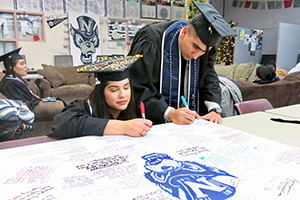
Ingredients for success
"We know our recipe works," Mariluz Garcia, director of the Dean's Future Scholars program, said. "The two basic steps include long-term mentoring during academic school year at the K-12 school sites and summer programming opportunities on the University campus each summer. Once students matriculate to the University, they have access to the DFS lounge where they can print for free, get assistance and support, and experience a strong sense of belonging. If we can keep that same formula, and sustainably grow, we'll be in a very good place."
Each year 18 Title 1 schools in the Washoe County School District recommend a total of 80 sixth-grade students for participation in the Dean's Future Scholars program. Once students are identified, DFS mentors work with students at their respective schools throughout middle school, high school and college. Additionally, program alumni can access guidance and support long after high school and college graduation.
"Once students are recommended to our program we stick with them through good times and bad. We never give up on them and we are committed to supporting their individual needs and goals," Garcia said.
The DFS program currently serves students who attend 28 different schools in the WCSD.
The Secret Ingredient
"Long-term mentoring is the heart of our program," Garcia said. "What makes us unique from other college access programs is that we empower DFS college mentors to do the work and 94 percent of our mentors are alumni of the DFS program. We believe our near-peer mentoring model is a highly effective approach to working with low-income, first-generation youth."
The University has seen the value in DFS and, as the state's land-grant institution, it continues to support its efforts. Dean's Future Scholars is written into the University's Strategic Plan highlighting it as a program that will help the University work with school districts to improve college readiness of high-school graduates.
"The DFS program is the reason why I have been able to graduate with a master's degree in education," DFS graduate assistant, Ohanna Turcios-Ramirez said. "It is what has molded me, challenged me and what has allowed me to succeed as a first generation student at the University. This program doesn't just help students overcome obstacles, it is a family that sticks by your side and makes sure you come out stronger."
According to Garcia, DFS has served a total of 1,116 students, with 95 percent of the DFS program participants considered "first generation" (neither parent has earned a bachelor's degree) and over 75 percent qualifying for free or reduced lunch. Despite coming from underrepresented populations, 17 years of longitudinal program data show an overall college enrollment rate of 65 percent and an overall University college retention rate of 82 percent for DFS program participants.
"In Spring 2016, we met our highest high school graduation rate of 98 percent for the second time in three years," Garcia said. "This accomplishment is profound considering graduation rates in the school district for students who receive free or reduced lunch is historically low with only 66 percent of low-income seniors graduating high school in 2016."
Donors are taking notice too. In the past five years, DFS has received $1,844,234 in generous support from 158 donors. These donations have allowed DFS to grow the program alongside growing University enrollment. The program has set an ambitious goal of reaching 480 K-12 students per year by 2021. Currently DFS serves 387 K-12 students, 131 University students, and 44 students at Truckee Meadows Community College.
"DFS is a homegrown product of the University and we're incredibly proud of the work Mariluz and her team are doing with all of their students," Ken Coll, dean of the College of Education, said. "Combined with other programs on campus like GEAR UP and Upward Bound, the University is helping to ensure more low-income, first-generation students have access to a higher education."
In addition to the support provided by DFS mentors, program participants have the opportunity to partake in summer programs. The various summer programs range from three to eight weeks in length and take place on campus. Programming includes an intense focus on STEM, recreation and relationship building. Tuition, transportation, food and field trips are all provided to program participants at no cost.
"The DFS memories that I have created since the sixth grade are ones that I hold dear to my heart," DFS mentor, Diana Tabares-Avila, a senior majoring in community health sciences at the University said. "I am so thankful for all of the opportunities that DFS has given me and for those mentors who helped me along the way. Most importantly I am thankful to have mentees of my own. Through DFS I am able to give back and being able to impact someone's life for the better is such an amazing feeling. DFS is my home away from home and my family."
